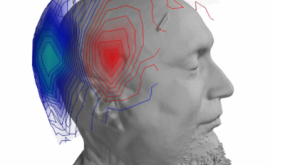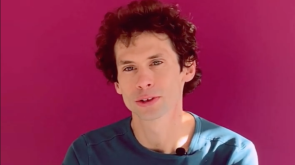
Claudi Lunghi won an ERC starting grant
Claudia Lunghi, CNRS researcher at the Laboratoire des Systèmes Perceptifs / Vision team, won an ERC starting grant for the project "Homeostatic Plasticity beyond the critical period" (HOPLA).
About the HOPLA project
Fine-tuning of our sensory systems, learning, memory and cognition rely on neuroplasticity, the capability of our brain to change in response to environmental pressures. Neuroplasticity is maximal during development, underlying the peak of our ability to learn in early childhood and also allowing us to adapt to the external world. As we age, the plastic potential of the brain decreases, especially for sensory cortices. The classical view is that the sensory brain becomes hard-wired after the temporal window of maximal plasticity called critical period (6-7 years in humans). As a consequence, the ability of our sensory brain to react to injury, sensory loss and to recover from conditions established during development becomes limited in adulthood.
In my previous research I have shown that a particular form of neuroplasticity called homeostatic plasticity is relatively preserved beyond the critical period, opening new horizons on adult sensory plasticity. Building on these observations, in project HOPLA I will unravel the multifaceted nature of sensory neuroplasticity in adult humans, elucidate the underlying mechanisms and explore new forms of plasticity.
The project is articulated around four unresolved issues:
1- What is the relationship between Hebbian and homeostatic plasticity?
2- What is the role of excitation/inhibition balance in enhancing and consolidating homeostatic plasticity?
3- Is it possible to elicit new forms of visual and auditory homeostatic plasticity?
4- What is the interplay between neuroplasticity occurring between and within sensory modalities?
To address these questions, I will combine classic behavioural measurements of visual and auditory perception with state-of-the-art neuroimaging techniques and virtual reality environments both in healthy and clinical populations (amblyopic and deaf adults). The proposed research is based on strong theoretical hypotheses and has outstanding applications for neuro-rehabilitation in adult humans.
MORE INFO



